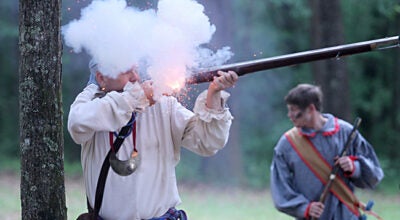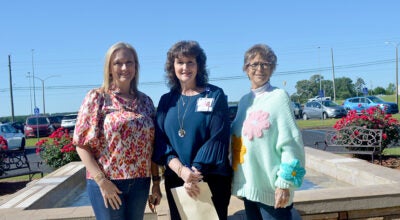Key works to help expand understanding of civil rights
Published 10:11 pm Tuesday, July 14, 2020
|
Getting your Trinity Audio player ready...
|
The journey of the Civil Rights Movement of the 1950s and 1960s started in Alabama. The cities of Montgomery, Birmingham and Selma were home to some of the great turning points of the multi-year effort.
The Alabama Civil Rights Tourism Association, which was organized in 2019, following a decade of work by its president Steve Cox of Birmingham, is now offering tours to those three cities that include the places that housed and nurtured the movement throughout the era. The ACRTA began with input from the association’s partner, the State of Alabama’s Department of Tourism and the Alabama African-American Civil Rights Heritage Sites Consortium, said John Curry Key, ACRTA business and operations director.
“The Consortium is a part of the Birmingham Civil Rights Institute and works with the Smithsonian Institution,” Key said. “The Consortium consists of 20 sites which were of significant importance during the Movement of the 1950’s and 1960’s.”
Some of the sites are well known, Key said, including Sixteenth Street Baptist Church, Historic Bethel Baptist Church, Brown Chapel and the Dexter Avenue King Memorial Baptist Church in Montgomery. Other sites are very important but not quite as well known, he said.
“The aim of the association is to create tourism into our state based on themes of Social Justice and Civil Rights, past and present, as well as work with local sites to develop a sustainable tourism model.”
With the partner sites in Birmingham, Selma, Montgomery, Camden, and Tuskegee, Key said the association works to enhance delivery of oral presentations, develop local opportunities for unique catering/sales options, develop networks with local and folk artists to interact with groups and/or tourists to sell their works and develop a coordinated opportunity for development, gifts and donations from travelers to the sites.
“All of this works to engage local people while keeping monies generated in the communities by developing sustainable tourism which reduces their reliance on grants and donations,” Key said.
As an example, Key said Selma is one of the most important locations in the history of the movement but most often tours will only the view sites from the motor coach, walk across the Edmund Pettus Bridge and then head to Montgomery without leaving any money at all in Selma.
“We have a full agenda in place to turn that around,” he said.
The association provides assistance with all aspects of Civil Rights interests.
“Our role can be as simple as acting as a resource to operating tour programs with everything the group might want included, or anything in between,” Key said.
In addition to interest from universities, Key said scheduled departures are for groups such as New York Times Journeys, mega churches, law firms with additional racial awareness and diversity training and high schools.
“We are developing specialty tours for the African American Museum of History & Culture for 2022 through connections we have with the Smithsonian,” Key said. “We seem to have found a niche with providing art tours which focuses on African American arts, art from the Movement and local folk artists.”
In addition to tours, Key said, the association also works with various state bar associations to provide bias and diversity training during a visit along the Civil Rights Trail.
“We also provide field studies for medical and physician groups which study and review the health disparities in rural communities, much of it in the Black Belt Region,” he said. “These programs are increasingly popular among attorneys and urban medical groups.”




